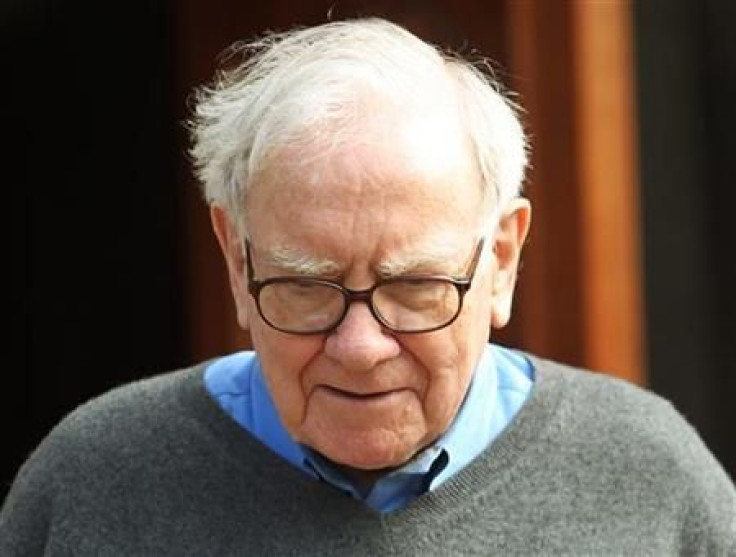Five Reasons Why Warren Buffett Finally Bought IBM
ANALYSIS

So now we know one reason why shares of IBM, the No. 2 computer services company, rose nearly 13 percent over the past three months: Warren Buffett was buying.
Indeed, through Berkshire Hathaway, Buffett's investment vehicle, the Sage of Omaha now owns about 5.5 percent of IBM, at a cost exceeding $10.7 billion.
They have laid out a road map and followed it extremely well, he said on Comcast's CNBC network Monday. Shares of IBM traded up $2.13 to $189.53 in early trading.
Here are five reasons why Buffett invested in IBM:
It's a well-managed business. If Buffett were a gambler, he'd have invested in IBM in early 1993, just as the Armonk, N.Y.-based computer giant ousted CEO John Akers and brought in RJR Nabisco CEO Louis V. Gerstner Jr.
Gerstner in mid-1993 ordered one of the biggest write-offs in corporate history, put IBM onto a better focus of services and ultimately sold low-margin businesses in PCs and other areas.
On Jan. 1, IBM will install its third CEO since then, EVP Virginia Rometty, 54, who'll likely continue in the same path. IBM is projecting operating earnings of $13.35 a share this year, moving as high as $20 a share in four years.
IBM's stability attracts confidence. During Samuel Palmisano's tenure at IBM, Hewlett-Packard overtook it to become the No. 1 computer services company. But at a cost: moves into PCs and services led to huge buys of companies like Compaq Computer and Electronic Data Systems.
Meanwhile, after decades of stable leadership, HP went through a series of CEOs --- Carly Fiorina, Mark Hurd and Leo Apotheker --- before electing former eBay CEO Meg Whitman on Sept. 25.
The instability may cause problems with enterprise customers wondering who's in charge. But technology is dynamic, too.
IBM serves as an economic proxy. Because so much of IBM is service-related, as it has been for nearly 18 years, it's a proxy for the U.S. economy. Berkshire Hathaway, which owns properties including Geico, BNSR Railway and Lubrizol, is in many ways another.
Every industry requires technology now, so as IBM increasingly tailors service offerings to verticals, it mirrors the overall economy.
IBM is multinational. No surprise with a company that's been a multinational for most of its 100-year history, IBM derives most of its revenue outside the U.S., with particular new growth in fast-growing economies in China, India and Russia.
In the third quarter, U.S. revenue was below 40 percent of the overall $26.2 billion of the company total. IBM also serves as a proxy for world expansion as its enterprise customers grow.
Patents and new research. IBM may not have won any Nobel Prizes this year, but it has won five in the past for innovations including the scanning-tunneling microscope and superconductivity; the company is also the perennial leader in numbers of patents awarded by the U.S. Patent Office.
Last year, IBM reported winning 5,986 patents, more than any company.
Good management, of course, is what's needed to make money with them. But the IBM rebuilt by Gerstner and strengthened by Palmisano, 60, leaves Rometty with a strong foundation.
It's a business Buffett can understand. Buffett, 81, has long said he won't invest in businesses he can't understand. Despite his friendship with Microsoft Chairman Bill Gates, he's avoided technology.
But he told CNBC he's read the annual report since 1961 and surely by now understands all the above points. Plus, he's optimistic about management, directors and cash flow. That's money for Berkshire's bottom line.
Berkshire shares fell $1,210 to $114,251 in early trading.
© Copyright IBTimes 2024. All rights reserved.












